 i am trying to parse the incoming GPGGA NMEA GPS string using Arduino uno and below code.
What i am trying to do is that i am using only GPGGA NMEA string to get the values of Latitude, longitude and altitude.In my below code, i had put certain checks to check if incoming string is GPGGA or not, and then store the further string in a array which can be further parsed suing strtok function and all the 3 GPS coordinates can be easily find out.
i am trying to parse the incoming GPGGA NMEA GPS string using Arduino uno and below code.
What i am trying to do is that i am using only GPGGA NMEA string to get the values of Latitude, longitude and altitude.In my below code, i had put certain checks to check if incoming string is GPGGA or not, and then store the further string in a array which can be further parsed suing strtok function and all the 3 GPS coordinates can be easily find out.
But i am unable to figure out how to store only GPGGA string and not the further string.I am using a for loop but it isn't working.
I am not trying to use any library.I had came across certain existing codes like this.
Here is the GPGGA string information link
i am trying to have following functionlity i) Check if incoming string is GPGGA ii) If yes, then store the following string upto EOL or upto * (followed by checksum for the array) in a array, array length is variable(i am unable to find out solution for this) iii) Then parse the stored array(this is done, i tried this with a different array)
#include <SoftwareSerial.h>
SoftwareSerial mySerial(10,11); // 10 RX / 11 TX
void setup()
{
Serial.begin(9600);
mySerial.begin(9600);
}
void loop()
{
uint8_t x;
char gpsdata[65];
if((mySerial.available()))
{
char c = mySerial.read();
if(c == '$')
{char c1 = mySerial.read();
if(c1 == 'G')
{char c2 = mySerial.read();
if(c2 == 'P')
{char c3 = mySerial.read();
if(c3 == 'G')
{char c4 = mySerial.read();
if(c4 == 'G')
{char c5 = mySerial.read();
if(c5 == 'A')
{for(x=0;x<65;x++)
{
gpsdata[x]=mySerial.read();
while (gpsdata[x] == '\r' || gpsdata[x] == '\n')
{
break;
}
}
}
else{
Serial.println("Not a GPGGA string");
}
}
}
}
}
}
}
Serial.println(gpsdata);
}
Edit 1: Considering Joachim Pileborg, editing the for loop in the code.
I am adding a pic to show the undefined output of the code.
Input for the code:
$GPGGA,092750.000,5321.6802,N,00630.3372,W,1,8,1.03,61.7,M,55.2,M,,*76
$GPGSA,A,3,10,07,05,02,29,04,08,13,,,,,1.72,1.03,1.38*0A
$GPGSV,3,1,11,10,63,137,17,07,61,098,15,05,59,290,20,08,54,157,30*70
$GPGSV,3,2,11,02,39,223,19,13,28,070,17,26,23,252,,04,14,186,14*79
$GPGSV,3,3,11,29,09,301,24,16,09,020,,36,,,*76
$GPRMC,092750.000,A,5321.6802,N,00630.3372,W,0.02,31.66,280511,,,A*43
$GPGGA,092751.000,5321.6802,N,00630.3371,W,1,8,1.03,61.7,M,55.3,M,,*75
$GPGSA,A,3,10,07,05,02,29,04,08,13,,,,,1.72,1.03,1.38*0A
$GPGSV,3,1,11,10,63,137,17,07,61,098,15,05,59,290,20,08,54,157,30*70
$GPGSV,3,2,11,02,39,223,16,13,28,070,17,26,23,252,,04,14,186,15*77
$GPGSV,3,3,11,29,09,301,24,16,09,020,,36,,,*76
$GPRMC,092751.000,A,5321.6802,N,00630.3371,W,0.06,31.66,280511,,,A*45